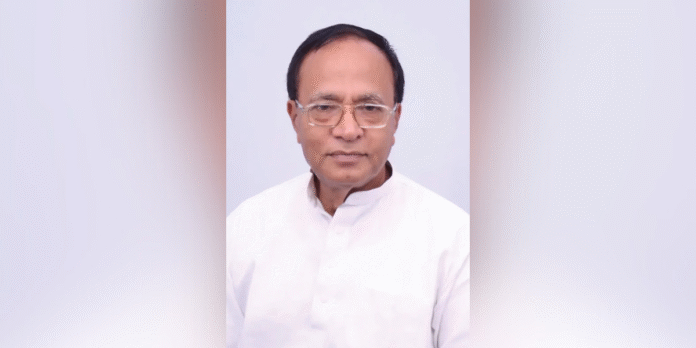As islanders in the Andaman and Nicobar Islands endure daily power cuts lasting up to 16 hours, Member of Parliament Bishnu Pada Ray has penned a strongly worded letter to Prime Minister Narendra Modi and Home Minister Amit Shah, calling for urgent central intervention to resolve the region’s deepening power crisis. In a bold escalation, Ray has demanded the immediate removal of Lt. Governor Admiral D.K. Joshi, accusing him of eight years of misgovernance and negligence.
In his letter, copies of which have also been forwarded to senior central and local officials, Ray accused the Lt. Governor of ignoring the worsening electricity situation while ensuring that Raj Niwas, the official residence of the LG, receives uninterrupted 24×7 power. “The people are suffering. The LG has failed to act for years while living in luxury,” Ray wrote, alleging a disconnect between the administration and ground realities faced by citizens.
The MP’s outburst comes in the wake of a recent announcement by the Electricity Department regarding rotational load-shedding across South Andaman and Sri Vijaya Puram, starting August 1. The shutdown of the NVVN power plant at Chatham, which is being cleared to make way for a new 10 MW facility, has led to a supply shortage of 5 MW. However, the actual demand-supply gap has now widened to approximately 9 MW during peak hours, driven by increased use of high-power appliances and inverter recharging.
Ray has rejected these explanations, calling them misleading and false. “The claims about heatwaves are fabricated. This crisis is man-made, rooted in administrative apathy and failure,” he said, adding that the Centre must not only remove Admiral Joshi but also withhold his pension and initiate disciplinary proceedings for what Ray termed a systemic collapse under his watch.
The MP outlined what he believes to be the root causes of the crisis, pointing to long-standing structural and operational deficiencies. According to Ray, the islands remain cut off from the national power grid, leaving them vulnerable to local breakdowns. He also noted that key diesel generator (DG) sets, which were sent for repairs during the COVID-19 pandemic from Kadamtala, have not returned in over four years, further weakening capacity.
Ray further criticised the underperformance of the 20 MW solar project in Port Blair, which is currently generating only 2 MW, and highlighted the chronic staffing shortages in the Electricity Department, including the prolonged vacancy of the Superintending Engineer post. He alleged that small private power contractors, who now shoulder much of the supply burden, are unable to deliver consistently due to poor infrastructure and lack of oversight.
The MP also claimed he was deliberately excluded from a high-level meeting with the Union Power Minister in 2024, describing it as a political move aimed at silencing his criticism. This exclusion, he believes, is symptomatic of a broader disregard for democratic consultation and public accountability within the island administration.
Amid growing public discontent, Ray warned that the administration’s inaction could lead to a serious breakdown in law and order. He pointed to increasing protests, social media outrage, and calls for civil disobedience as signs of a population on the brink of revolt. “If the Centre doesn’t act now, chakka jams and hartals will spread,” he warned.
Among the steps Ray is pushing for are the urgent deployment of new DG sets, full restoration of power supply, and a CBI-level probe into the non-functional solar installations at Dollygunj and Attom Pahar. He has also proposed the creation of a central monitoring committee to assess the islands’ crumbling power, infrastructure, and health systems.
As the rotational load-shedding plan continues with five scheduled outages daily between 4 p.m. and 11:30 p.m., affecting homes, businesses, and hospitals, the Electricity Department has cautioned that schedules may change every fortnight depending on availability. But for many islanders, patience is wearing thin.
Ray’s intervention signals a critical political moment in the power crisis, reframing it not just as a matter of energy infrastructure but as a referendum on governance in the union territory. With frustrations boiling over and public trust eroding, the crisis is rapidly evolving into a broader test of administrative accountability in one of India’s most strategically significant regions.





